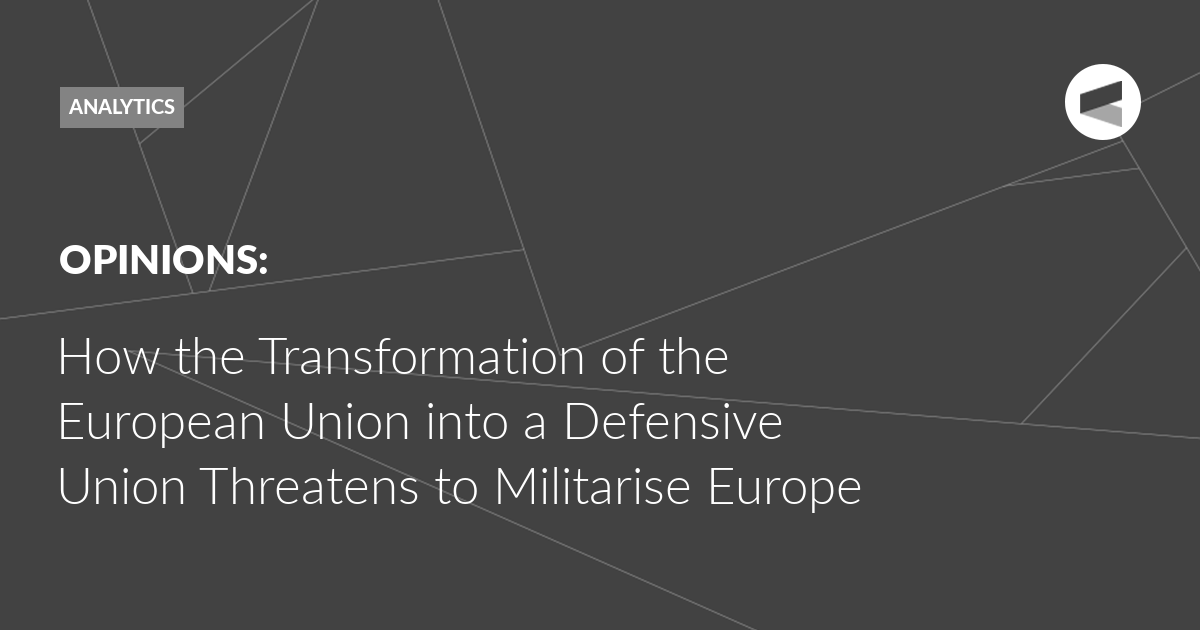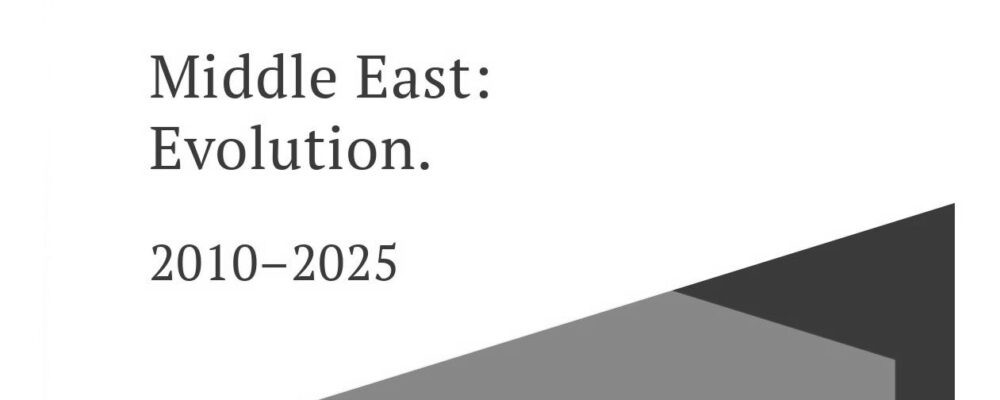The European Union has already militarised Ukraine to the breaking point. It is logical that, out of supposed fear of Russia, the countries of the European Union, which form the first line of contact with Russia from the Baltic to the Black Sea, would embrace additional militarisation. The transformation of the European Union into a defence union is certain to lead to the further militarisation of Europe, Aleksandar Raković writes.
Western imperialism, military aggression, economic sanctions and identity interventionism are completely inseparable. Centuries of such activities have made the West — except declaratively — not in need of peace-making mechanisms. When the political West talks about peace-making policy and defence, it should only serve to throw dust in the eyes, so that the true intentions reflected in aggressive policy are obscured as well as possible.
After the Second World War, the new architecture of the world led the political West towards establishing its own compromise; the Western countries set aside earlier wars for territory and colonies amongst themselves, so that they would no longer fight each other for booty. Since then, the West has created a new policy: Washington, London, Berlin, Paris, Brussels and others jointly conquer the loot and then redistribute it amongst themselves.
During the Cold War, when the Eastern Bloc stood opposite NATO, and while there was a strong Third World embodied in the Non-Aligned Movement, there was a balance that prevented the political West from establishing total global dominance.
After the Cold War, the Euro-Atlantic structures of the West, especially the “deep state” in the United States of America and the “Brussels bureaucracy” of Western Europe, without any brakes, jointly attacked the interests of other countries and peoples, through Western military and political institutions, intelligence agencies, multinational corporations, courts, the media, lobbying groups, non-governmental organisations, and the quasi-scientific and quasi-cultural elite.
Since 1991, with the invasion of Iraq and the breakup of Yugoslavia, the political West has returned to its original settings and replaced cultural interventionism with military interventionism. With the collapse of the Soviet Union, the seemingly humane face of Western politics, embodied by the expansion of popular culture and affirmative values of Western life, disappeared. In reality, despite the optimistic songs Wind of Change (Scorpions) and Bang (Gorky Park), in the political West there has never been a desire to establish a friendly relationship with Russia as equal partners. In contrast, there were plans to divide the Russian Federation and ultimately destroy it.
Western Europe, through NATO, has been exposed to the military hegemony of the United States of America for almost eighty years. Germany and Italy had to accept it because they were defeated in the Second World War, and France and Britain because they were weakened by the Second World War.
However, the growing economic power of the European Union and its increasingly branched and pervasive bureaucracy, which rivals that of the United States of America, have led to more and more talk favouring a European security system and greater, but not complete, independence from the NATO alliance.
The security system of the European Union is considered a branch of the Common Foreign and Security Policy. The defence policy was established in 1999 in the European Security and Defence Policy, and in 2009 it was renamed the Common Security and Defence Policy. Of course, it is striking that the alleged defence policy coincides with the beginning of the Western military aggression against the Federal Republic of Yugoslavia, when NATO occupied the southern Serbian province of Kosovo and Metohija.
Therefore, it should not be surprising that the first military missions of the European Union, in order to manage the crisis, began in Serbian and Yugoslav territory: in 2003 in the Republic of Macedonia (Operation Concordia) and in 2004 in Bosnia and Herzegovina (Operation Althea). At the same time, Operation Althea with the forces of EUFOR was an extension of the NATO aggression against the Serbian people in Bosnia and Herzegovina and Croatia (1994–1995) and the NATO SFOR mission to establish peace, control and occupation of Bosnia and Herzegovina (1996–2004).
After that — until today — the military missions of the European Union have extended to the Middle East, Africa, and beyond, which shows the intentions that Western Europe will be established as an autonomous military power in the future, although it would remain part of NATO.
Incidentally, when Russia’s special military operation in Ukraine began in 2022, EUFOR increased its forces in Bosnia and Herzegovina in order to put pressure on the Republic of Srpska and threaten the authorities in its capital city Banja Luka, which the West considers pro-Russian. EUFOR forces patrolled the roads, streets and railways of the Republic of Srpska, as a demonstration of force against the Serbian people. In order to protect against a possible intervention, the Republic of Srpska authorities stationed special police forces and their combat vehicles in front of the Republic of Srpska Government building.
Therefore, the actions of the European Union military mission in Bosnia and Herzegovina were a provocation and a threat to the Republic of Srpska, just as much as the NATO military mission in Kosovo and Metohija is a threat to the Republic of Serbia. The European Union maybe wants more independence in relation to NATO, but ultimately the goals are the same — to make it difficult for the Serbs to lead an independent policy and to prevent the unification of the Serbian people into one state. Thus, the European Union military interventionism is also a threat to Serbian interests.
The strengthening of the muscles of the European Union, in the military sense, is also visible in its relationship with the Russian Federation. At the same time, Brussels structures do not even hide that the reintegration of Crimea into Russia was one of the key events which prompted the deepening of the “European defence policy”. Then, in 2016, the victory of Donald Trump in the presidential elections in the United States of America was another warning sign for Brussels. During his presidential term (2017–2021), Trump repeatedly said that NATO was obsolete. However, current circumstances and possible future developments have worsened Brussels’ fears.
On the one hand, there is Russia’s special military operation in Ukraine to which the West has no successful response. On the other hand, in the United States of America, in November 2024, presidential elections will be held in which Donald Trump is the favourite. It is logical that if elected, Trump will return to his intentions to deal with the deep state, the “Washington swamp”, and also question the future of the NATO alliance.
Therefore, it should not be surprising that the proposals for the creation of the European Defence Union are increasingly linked to the fear of Vladimir Putin and Donald Trump, that is, of Russia’s victory in its special military operation and the reversal of American military policy, which supposedly does not care too much about Western Europe. However, this can only serve as an excuse or justification for the Brussels structures to make moves that would lead to the establishment of the European Defence Union.
It is very visible that Western Europe is increasingly revealing its intention to spread its own interventionism on a global scale, from the Atlantic to the Indian Ocean. The European Union has already militarised Ukraine to the breaking point. It is logical that, out of supposed fear of Russia, the countries of the European Union, which form the first line of contact with Russia from the Baltic to the Black Sea, would embrace additional militarisation. The transformation of the European Union into a defence union is certain to lead to the further militarisation of Europe.
The Valdai Discussion Club was established in 2004. It is named after Lake Valdai, which is located close to Veliky Novgorod, where the Club’s first meeting took place.
Please visit the firm link to site






